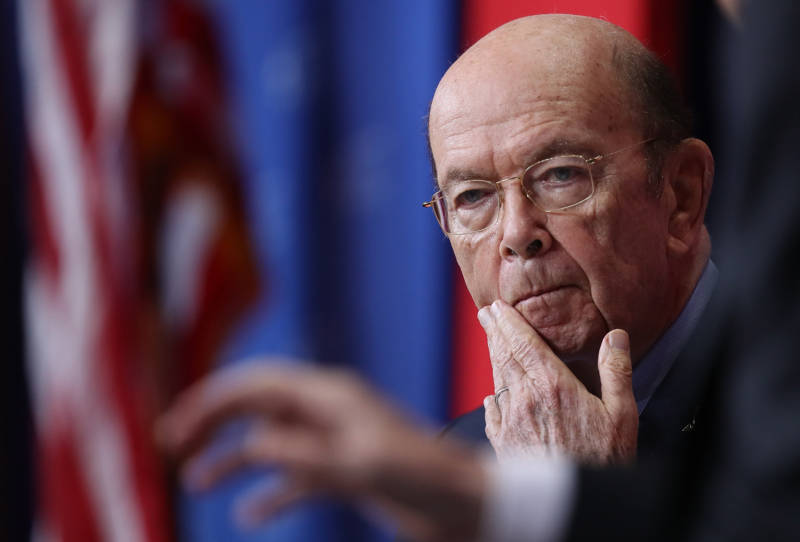A federal judge in New York has ruled against the Trump administration's decision to add a citizenship question to the 2020 census.
U.S. District Judge Jesse Furman ordered the administration to stop its plans to include the controversial question on forms for the upcoming national head count "without curing the legal defects" the judge identified in his 277-page opinion released on Tuesday.
The question asks, "Is this person a citizen of the United States?" All U.S. households have not been asked such a question on the census since 1950, although it has been asked of a sample of households for past head counts and for the Census Bureau's American Community Survey.
Furman found that the decision by Commerce Secretary Wilbur Ross to add the citizenship question to the 2020 census was "unlawful" because of "a veritable smorgasbord of classic, clear-cut" violations of the Administrative Procedure Act, including cherry-picking evidence to support his choice. Ross oversees the Census Bureau.
"To conclude otherwise and let Secretary Ross's decision stand would undermine the proposition — central to the rule of law — that ours is a 'government of laws, and not of men,'" Furman wrote, quoting one of the country's founding fathers, John Adams.
Furman added, "[Ross] ignored and violated a clear statutory duty" to use existing government records about people's citizenship status as much as possible rather than using the census to ask a citizenship question. In another violation of the law, Ross "announced his decision in a manner that concealed its true basis rather than explaining it," Furman said.
In addition to the two consolidated cases Furman ruled on, the Trump administration is fighting five more lawsuits across the country filed by dozens of states, cities and other groups that want the citizenship question removed.
A second trial over the question began earlier this month in San Francisco, and is ongoing. Another is scheduled to begin in Maryland on Jan. 22.
Furman's ruling in New York was met with praise by California Secretary of State Alex Padilla.
"Today's ruling is a victory for democracy and a major blow to the Trump administration's attempts to undermine the 2020 Census," said Padilla in a statement.
"We’re thrilled, but not surprised, that [the New York] court reached the decision it did," Ezra Rosenberg, co-director of the Voting Rights Project at the Lawyers' Committee for Civil Rights Under Law, told KQED.
While the California court is not bound by the New York decision, Rosenberg said, it provides "additional persuasive authority that [Secretary Ross] acted unlawfully."
San Francisco City Attorney Dennis Herrera also chimed in.
"Once again, the rule of law has checked this presidential administration," he said in a statement.
Furman left open the possibility that Ross might be able to move forward with the question if he were to meet a series of specific requirements, including providing his "real rationale" that would support his decision to add the question.
The judge also ruled that the plaintiffs did not provide enough evidence to prove their claim that Ross' decision was intended to discriminate against Latinos, Asian-Americans, Arab-Americans and immigrant communities of color. Such a claim, Furman noted, would need to be backed up with testimony from Ross about his intent for the question.
The issue of questioning Ross, however, has been put on hold after the Supreme Court agreed to weigh in on a dispute over what evidence can be considered for the lawsuits. The justices are scheduled to hear oral arguments in February on that issue, as well as on whether Ross can be questioned under oath by the plaintiffs' attorneys about why he approved adding the question.
